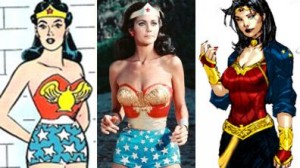
Many of the products aimed at holiday shoppers this year are inspired by popular comic books. Most of these items, including toys, games, accessories and clothing, feature superheroes with names that parents will recognize from their own childhoods. According to new research from the University of Cambridge, however, these familiar characters may bear little resemblance to the wholesome heroes whose adventures filled the comic books of a generation ago. Earlier this year, DC Comics revamped its characters to appeal to a shrinking market, turning up the blush factor by adding heavy sexual overtones to its cape-wearing cast.
Comic book sales have fallen in recent years, and DC, which had attempted to reach a broader audience over the last decade or so, made the decision to use a tried-and-true tactic to woo a new generation to their product. Historically, superhero comic books were unapologetically geared towards male readers, and featured a potent combination of violence and covert sexuality. Emboldened by their desperation, DC relaunched all of its titles this year. With drawings that are reminiscent of longtime rival Marvel’s offerings from the late ’70s and frankly sexual subplots, the “New 52” isn’t the Wonderwoman or Batman you think it is. That is, unless the Batman of your imagination has sex on a rooftop with Catwoman.
The study’s author, Casey Brienza, is considered an expert in manga. She is currently working on a project that views the introduction of manga in the United States from a sociological perspective, focusing on what the manga phenomenon in the United States means in terms of cultural globalization. According to Brienza, superhero comics treat women as a subject, not an audience. One of the things she wants to understand is why American comic books are so male-oriented. “…Other comic book-loving countries such as Japan and France do not manifest the same trends, and the self-same superhero characters, when presented in another medium—such as Hollywood film— have truly mass appeal.”
Brienza concludes that “American superhero comics, and the sexual objectification of their heroines, reflect the conditions of their production and consumption: they are made almost exclusively by and for men.”
Leave a Reply